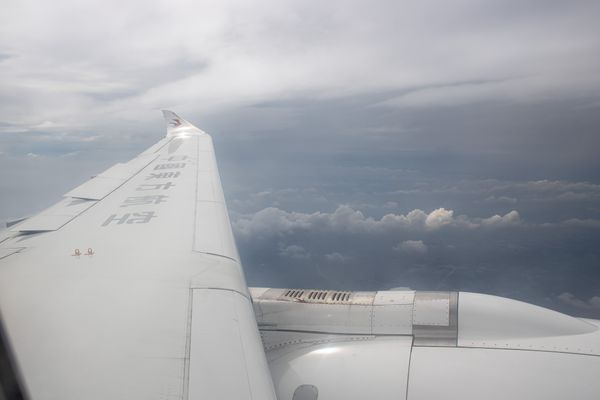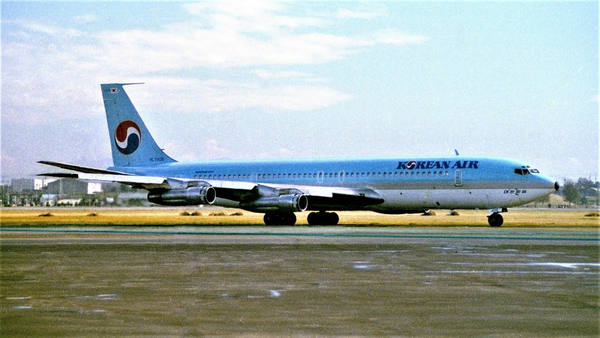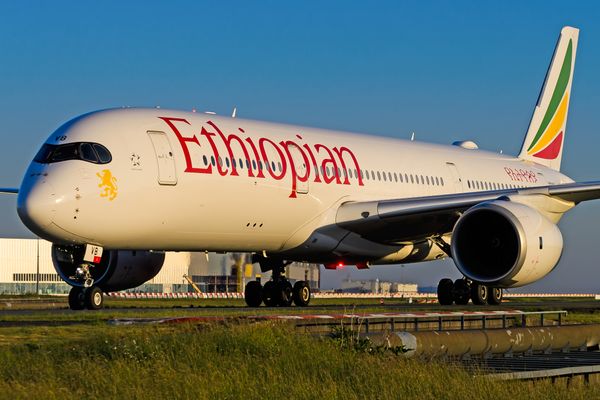
Almost all Frontier Airlines pilots are prepared to go on strike in the future if a "fair agreement" isn't reached between the company and its airmen. While a strike isn't imminent, Frontier Airlines is feeling the pressure of losing flights and revenue due to a possible walkout.
Frowning At Frontier
The Air Line Pilots Association (ALPA) shared results of a survey from 97% of current Frontier Airlines pilots, with 99% being in favor of a strike if necessary. The survey began on September 30 and concluded on October 15.
The majority of pilots are seeking a new contract from the Denver-based airline, and a walkout will likely take place if a new contract can't be agreed upon. Pilots among this union have reportedly been negotiating with airline executives for about a year.
In a statement, ALPA noted that current negotiations "Have yet to yield a market-based contract that aligns with industry standards and reflects the contributions of Frontier pilots."
"The industry [has] moved on since our last contract," added Frontier Airlines Captain Alan Christie on Tuesday.
Christie and his fellow airmen are seeking improved compensation, job security, retirement benefits, and quality of life. According to Glassdoor, pilots at Frontier Airlines currently make in between $179,000 to $294,000 per year .
Along with failed contract negotiations, however, several other different things would need to happen for the union to strike legally. Firstly, federal law dictates that the pilots and their union aren't able to strike until a National Mediation board deems that mediation is no longer effective. Both Frontier and the union would then be given the option of arbitration. If both parties decline arbitration, a "30-day cooling off period" goes. into effect. Following this period, a strike would be legally possible.

The strike, however, is considered a last-ditch effort for both parties. Chairman of the Frontier ALPA Master Executive Council Michael Maynard issued a statement on the ALPA website:
"This strong show of unity underscores our commitment to achieving a fair contract that meets the needs of our pilots...Our ultimate goal remains to reach a fair agreement with the company, not to strike. However, this vote equips our master executive council with a significant lever should we need to exercise it."
"A strike is a last-ditch measure. It's not something that we want to do. It's highly disruptive to families. It's highly disruptive to the airline and, more importantly, to our pilots," said Christie.
Frontier Spokesperson Rob Harris assures that talks regarding a new contract are still ongoing:
"Frontier remains committed to negotiating in good faith to achieve an agreement that supports our pilots and ensures the continued success of our company."
To Greener Pastures?
Back in May, Frontier Airlines made changes to its model to include more "out-and-back" flights. These are flights that depart from an airport and then the aircraft and crew return to the initial airport after the arrival. These flights are said to be beneficial for airlines as they minimize the time aircrafts spend grounded and reduce the risk of affecting other flights negatively.
At the time, the ALPA argued that with more time flying, that pilots would either demand more compensation or quit to join an airline that didn't have this model. Frontier however defended the move, stating that out-and-back flights were "in the best interest of the customer".
What You Don't Know About Airport Operations That Go Overnight » Coloring the Clouds: How ANA Turned Airplanes into Art » Why Fast Price Estimation Has Become Critical for Brokers and Clients »
Comments (0)
Add Your Comment
SHARE
TAGS
NEWS frontier airlinesPilots strikevote for strikeauthorize strikenews.RECENTLY PUBLISHED
 VIDEO: What It's Like Onboard China's COMAC C919
We flew onboard China Eastern's COMAC C919 to experience China's homegrown narrow-body up close. From seat comfort to cabin layout to noise levels to tech: how does it really compare with the Boeing 737 and Airbus A320? This review puts all three workhorses under the same spotlight.
TRIP REPORTS
READ MORE »
VIDEO: What It's Like Onboard China's COMAC C919
We flew onboard China Eastern's COMAC C919 to experience China's homegrown narrow-body up close. From seat comfort to cabin layout to noise levels to tech: how does it really compare with the Boeing 737 and Airbus A320? This review puts all three workhorses under the same spotlight.
TRIP REPORTS
READ MORE »
 KAL858: The North Korean Bombing that Shocked the World
Among the 99 passengers boarding Korean Air Flight 858 on November 29, 1987, few could imagine their journey would end as one of aviation's darkest mysteries.
STORIES
READ MORE »
KAL858: The North Korean Bombing that Shocked the World
Among the 99 passengers boarding Korean Air Flight 858 on November 29, 1987, few could imagine their journey would end as one of aviation's darkest mysteries.
STORIES
READ MORE »
 Ghost Networks: The Rise, Fall, and Revival of Fifth-Freedom Flights
Fifth-freedom flights — routes where an airline flies between two countries outside its home base — have always lived in aviation's twilight zone. We chart their rise, their near-disappearance, and the surprising markets where they still thrive today. Then we take you on board a special Seoul-Tokyo fifth-freedom flight to show how the experience stacks up against a typical regional carrier.
TRIP REPORTS
READ MORE »
Ghost Networks: The Rise, Fall, and Revival of Fifth-Freedom Flights
Fifth-freedom flights — routes where an airline flies between two countries outside its home base — have always lived in aviation's twilight zone. We chart their rise, their near-disappearance, and the surprising markets where they still thrive today. Then we take you on board a special Seoul-Tokyo fifth-freedom flight to show how the experience stacks up against a typical regional carrier.
TRIP REPORTS
READ MORE »



